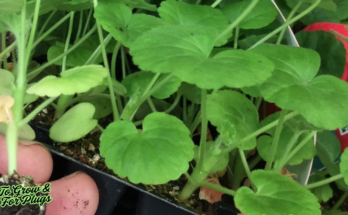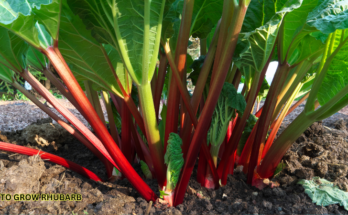When I started my vegetable garden, I sought the best companion plants. One question that often came up was, “Are Marigolds good for a vegetable garden?” I decided to dive into the benefits of these vibrant flowers to find out.
Marigolds are more than just pretty faces in the garden. They offer various advantages for vegetable plants. For starters, they repel harmful insects like aphids and nematodes. Their roots can also deter pests in the soil.
In addition to their pest control benefits, marigolds can attract beneficial insects like ladybugs and bees. They add a splash of color and charm, brightening up the vegetable patch.
Curious if marigolds are the right fit for your garden? I’ll share how these flowers can make a difference in your vegetable garden and offer some tips on planting them effectively.
Are Marigolds Good For A Vegetable Garden?
Yes, marigolds are good for a vegetable garden. They help by repelling pests like aphids and nematodes. Their strong scent deters unwanted insects.
Marigolds also attract beneficial insects such as ladybugs. They can even improve soil health. Plus, they add vibrant color to the garden.
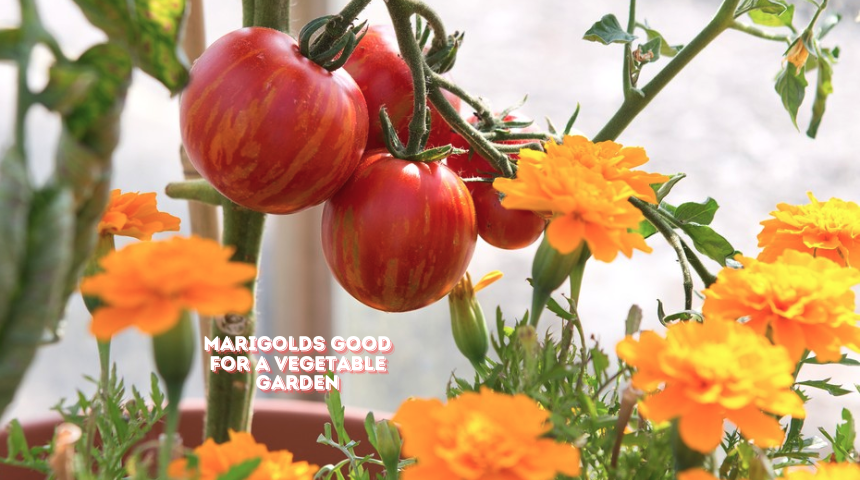
I find they make a great addition to my vegetable beds. Overall, marigolds are a practical and beautiful choice for any gardener.
Benefits Of Planting Marigolds With Vegetables
1. Pest Repellent
Marigolds are renowned for their ability to repel pests. The strong scent of marigolds acts as a natural deterrent for common garden pests such as aphids and nematodes.
These flowers release compounds that these pests find unpleasant, keeping them away from your precious vegetable plants. For example, marigolds are particularly effective against nematodes, which can damage plant roots and hinder growth.

By incorporating marigolds into your garden, you can reduce the need for chemical pest control methods and maintain a healthier garden environment.
2. Attracting Beneficial Insects
Not only do marigolds repel harmful pests, but they also attract beneficial insects. Ladybugs, for instance, are drawn to marigolds and are excellent at controlling aphid populations.
Additionally, marigolds attract bees, which are crucial for pollinating many of your vegetable plants. By creating a habitat for these helpful creatures, marigolds contribute to a balanced and thriving garden ecosystem.
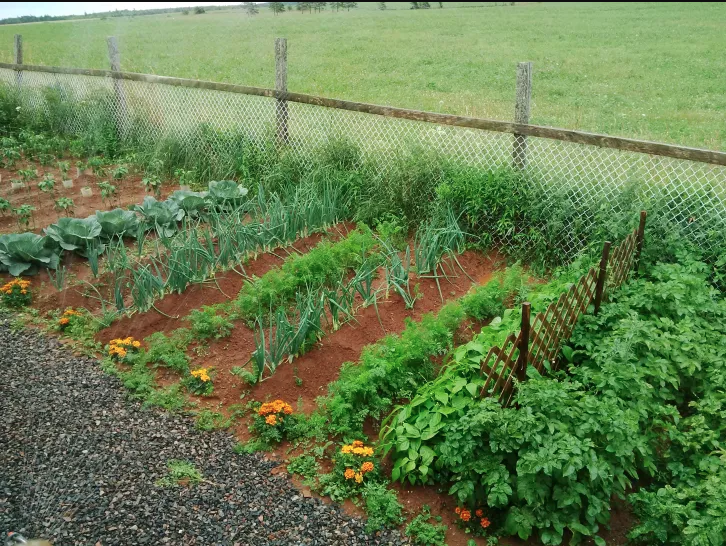
3. Disease Suppression
Marigold roots release natural compounds that help suppress certain soil-borne diseases. These compounds can inhibit the growth of harmful fungi and bacteria in the soil.
By planting marigolds, you can reduce the incidence of diseases like root rot, which can otherwise compromise the health of your vegetable plants.
4. Improved Soil Health
Marigolds contribute to soil health in several ways. Their roots help break up compacted soil and improve its structure, enhancing drainage and root growth for your vegetables.
Additionally, marigolds can increase the organic matter in the soil, leading to better nutrient availability and overall soil fertility.
5. Enhanced Garden Aesthetics
Marigolds add a burst of color to your vegetable garden with their vibrant blooms. Their bright oranges, yellows, and reds create a visually appealing contrast against the green of your vegetable plants.
This not only makes your garden more attractive but also creates a more enjoyable gardening experience.
6. Natural Pest Control
By acting as a natural barrier, marigolds help control pest populations without the need for synthetic chemicals.
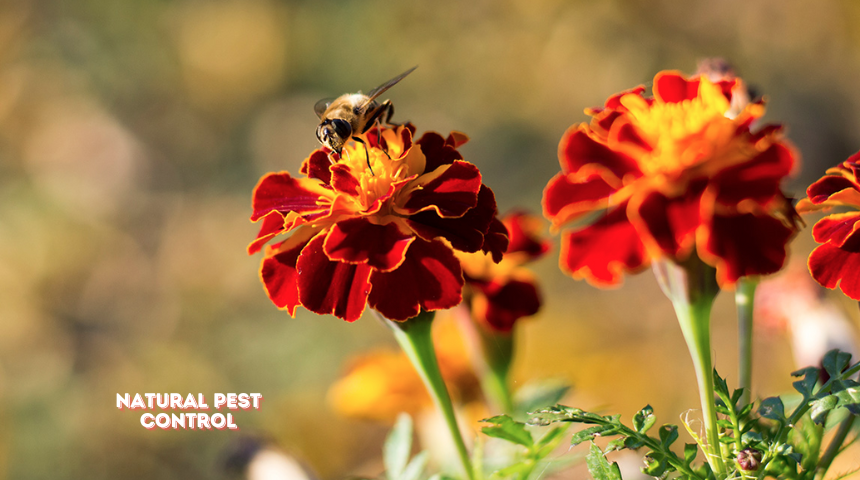
Their presence can deter pests from reaching your vegetable plants, thereby reducing the likelihood of pest infestations. This natural approach to pest management supports a more eco-friendly and sustainable garden.
7. Companion Plant Benefits
Marigolds can complement the growth of certain vegetables. For example, they can provide shade to delicate plants that prefer cooler conditions.

Additionally, their strong scent can mask the aroma of certain vegetables, making them less detectable to pests that might otherwise target those plants.
8. Long Blooming Period
Marigolds are known for their long blooming season. They produce flowers continuously from late spring to frost, providing a consistent source of color and pest control throughout the growing season.
This extended blooming period ensures that your garden remains vibrant and protected for a longer time.
9. Ease Of Care
Marigolds are hardy and require minimal care, making them an excellent choice for busy gardeners. They are drought-tolerant and can thrive in a variety of soil types.
Their low-maintenance nature means you can enjoy their benefits without investing a lot of time or effort in their care.
10. Improved Plant Growth
The presence of marigolds can create a more balanced and harmonious garden ecosystem. By repelling pests, attracting beneficial insects, and improving soil health, marigolds support the overall growth and productivity of your vegetable plants.
This balanced environment leads to healthier, more robust vegetables and potentially higher yields.
Planting and Care Tips
1. Planting Marigolds
To get the most out of marigolds, it’s essential to plant them correctly. Marigolds are best planted in spring after the last frost when the soil has warmed up.
They thrive in well-drained soil with plenty of sunlight. I recommend planting them around the edges of your vegetable beds or in between rows of vegetables.
This placement maximizes their pest-repelling benefits while ensuring they don’t overshadow your vegetable plants.
2. Caring for Marigolds
Marigolds are relatively low-maintenance, but they do benefit from regular care. Water them consistently, especially during dry spells, but avoid overwatering, which can lead to root rot.
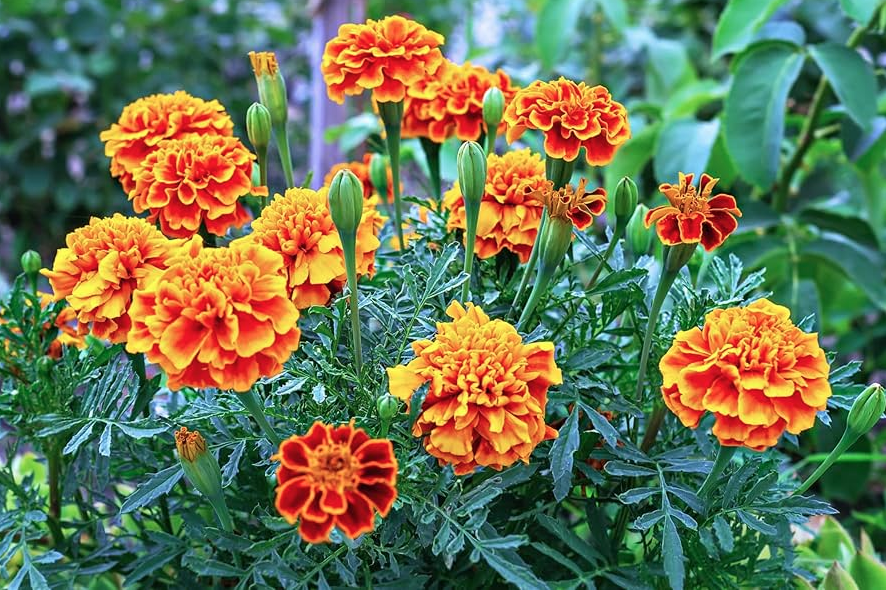
Fertilize them occasionally with a balanced garden fertilizer to encourage vigorous growth and blooming. Regular deadheading, or removing spent flowers, will promote continuous blooming and keep your marigolds looking their best.
3. Potential Drawbacks
While marigolds offer many advantages, they aren’t without potential drawbacks. In some cases, marigolds might not be as effective in repelling certain pests, and their presence alone won’t solve all pest issues.
Additionally, marigolds can be a bit invasive if not managed properly, potentially overshadowing smaller vegetable plants. It’s important to monitor their growth and adjust their placement if needed.
4. Personal Experience
In my own garden, marigolds have proven to be a fantastic addition. I’ve noticed a significant reduction in aphid problems since I started planting marigolds.
The vibrant colors have brightened up my vegetable beds, and I’ve seen more beneficial insects visiting my garden. Overall, marigolds have been a valuable and delightful part of my gardening routine.
Conclusion
In conclusion, marigolds make a fantastic addition to any vegetable garden. They’re not just pretty flowers; they offer real, practical benefits.
By repelling pests and attracting beneficial insects, marigolds help keep your garden healthier and more vibrant. Their ability to improve soil health and add a burst of color only enhances their value.
If you’re looking to add a splash of beauty while boosting your garden’s productivity, marigolds are a great choice.
They’re easy to plant and care for, making them perfect for both novice and experienced gardeners alike. In my own garden, marigolds have proven to be a game changer, contributing to a healthier and more enjoyable gardening experience.
So, why not give marigolds a try? You might just find they become one of your favorite garden companions. Happy gardening, and may your vegetable garden flourish with the help of these delightful blooms!
FAQ
Do marigolds repel pests?
Yes, marigolds help repel pests like aphids and nematodes. Their strong scent acts as a natural deterrent.
What beneficial insects do marigolds attract?
Marigolds attract beneficial insects such as ladybugs and bees. These insects help with pest control and pollination.
Can marigolds improve soil health?
Yes, marigold roots can improve soil health. They help suppress soil-borne diseases and enhance soil structure.
When is the best time to plant marigolds?
Plant marigolds in the spring after the last frost. They thrive in warm, sunny conditions.
How do I care for marigolds in my garden?
Water marigolds regularly but avoid overwatering. Fertilize occasionally and deadhead spent blooms to encourage more flowers.


